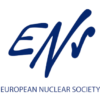Tractebel To Support PanTera’s Radioisotope Production Facility
Tractebel (ENS Corporate Member), together with its partner MODULO architects, will support the design and construction of PanTera’s actinium-225 production facility in Belgium, enabling breakthrough cancer treatments.
The PanTera facility will be built in Mol (Belgium) and is dedicated to the production of 225Ac via photonuclear activation on radium-226 (226Ra), powered by the high-energy IBA Rhodotron®.
The building integrates several bunkers to host the IBA Rhodotron® accelerator and irradiation stations, as well as various clean rooms for the separation, purification and dispensing of the radioisotope under Good Manufacturing Practice (GMP) conditions.
PanTera, Tractebel and MODULO are now completing the last engineering phases before launching the construction in 2025.
Tractebel’s engineers and MODULO architects’ colleagues are designing the new facility and providing engineering services in the fields of structural engineering, heating, ventilation and air conditioning (HVAC), electricity, fire protection, instrumentation & control (I&C), and mechanical.
Thanks to our infrastructure, nuclear and radioprotection competences, we are committed to remaining at the forefront of innovation in the medical sector to save lives thanks to nuclear.
said Denis Dumont, Chief Global Nuclear Officer at Tractebel.
Read the full Tractebel Press Release.
In September 2022, SCK CEN (ENS Corporate Member) and IBA (Ion Beam Applications S.A.), a world leader in particle accelerator technology, announced the creation of the joint venture Pantera SA/NV, resulting from the strategic R&D partnership between SCK CEN and IBA to enable the production of actinium-225 (225Ac).
Actinium-225 possesses the resounding potential to treat cancers more effectively. Initial results show that the theranostic radioisotope completely eliminates cancer cells, thanks to its high cytotoxic potency within a very short range, rather than just inhibiting tumour growth.
The risk of recurrence also appears to decrease. To date, extensive research and numerous studies are underway which aim to tackle both high-prevalence cancers, but also rarer forms.
Moreover, its half-life (10 days) enables a smooth process for logistics and centralized distribution.
Globally, medical isotopes benefit thousands of patients every day in current clinical practice and have great potential for future clinical challenges.
Last year, ENS, together with Euratom Supply Agency (ENS Member), organised the event Beating Cancer – turning the tide with medical isotopes, which gave us the opportunity to learn more about those amazing developments and to discuss the challenges ahead.
You can find its recording and all materials in our Special Newsletter.
